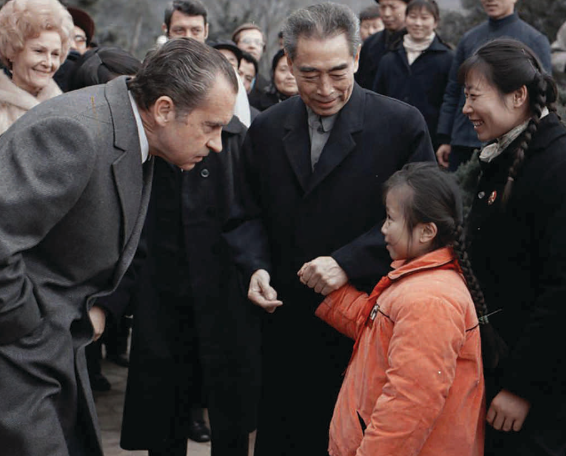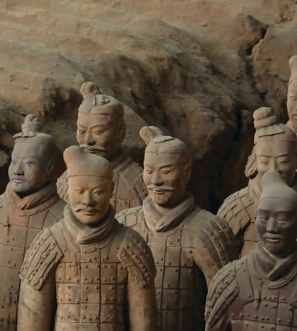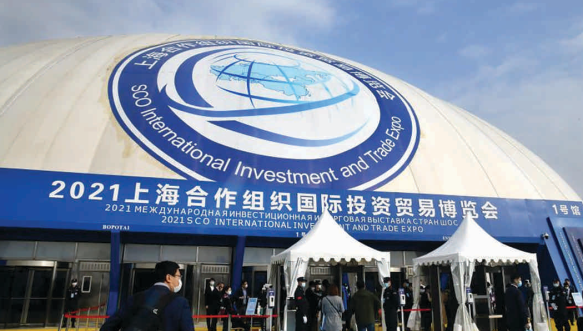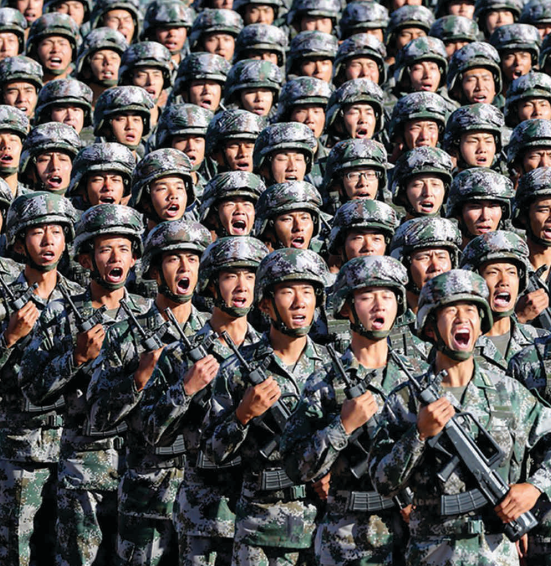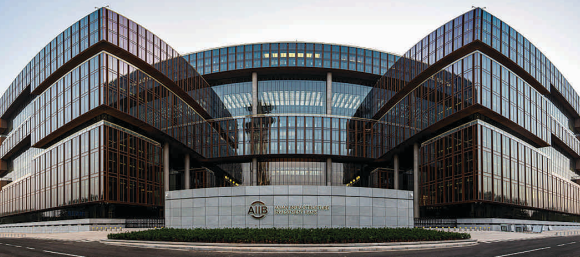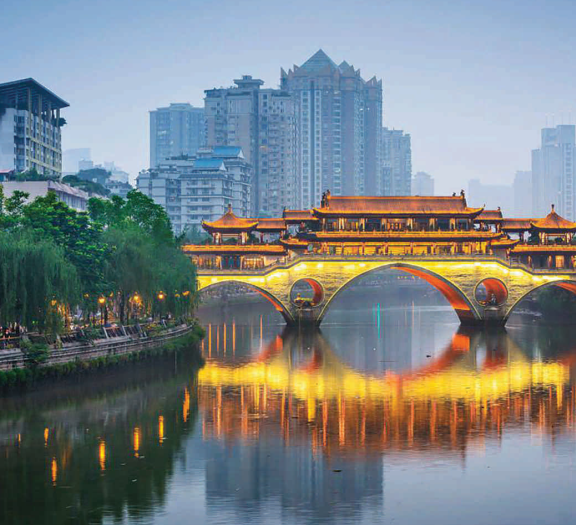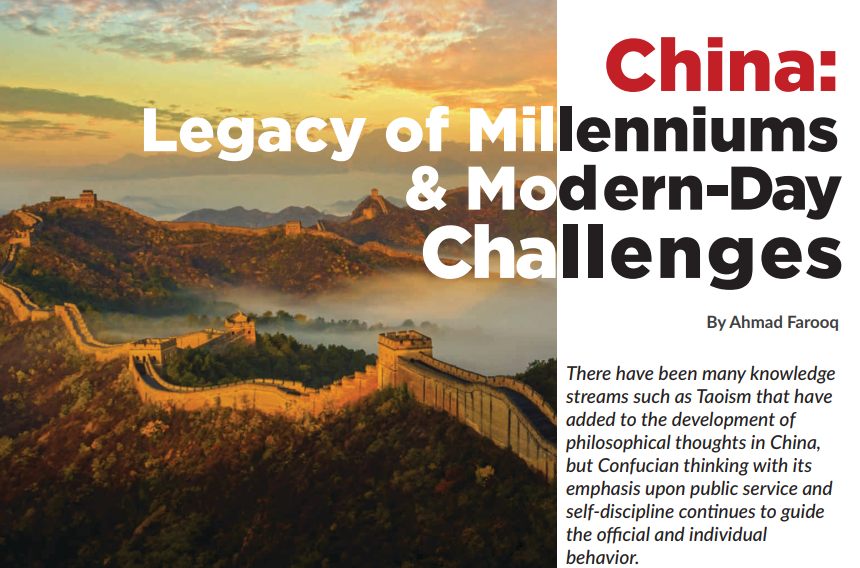
There have been many knowledge streams such as Taoism that have added to the development of philosophical thoughts in China, but Confucian thinking with its emphasis upon public service and self-discipline continues to guide the official and individual behavior.
By Ahmad Farooq
Lord Curzon once said “China is a university from where scholar doesn’t get a degree,” but is enlightened with knowledge and wisdom gathered over thousands of years.
Homosapiens, since their very genesis who remained in a continuous struggle for splendour and sublimity, have contested with the intimidating forces of nature and starting from cave-dwellings and hand-made clay and wooden instruments, have carved out great civilizations and cultures. But very little of those amazing achievements has been passed on to the later generations.
Those great civilizations are known today only through history books and nothing but some ruins and remains tell the world, of the stories of their grandeur. The once fabulous city of Nineveh, with its ruins in Iraq; the City of Dead, Mohenjo-Daro in Pakistan; the Hanging Gardens of Babylon; Homer’s invincible Troy; all are lost in the debris of time, with a sporadic mention here and there, and invoking occasional interest of archeologist or ‘treasure hunters.’
But Chinese is a lasting civilization and the last quarter of the 20th century saw China rising again, as American historian, Howard Grave observed “China is stirring in its sleep; a semi-comatose giant of vibrant intelligence”.
Yes, the Pyramids of Giza, Acropolis of Athens, and the Colosseum in Rome, are some of the memories of those glorious days, still standing and visible to the onlookers. Of course, Homer’s Iliad and Odyssey; Hammurabi’s Code of Law, writings of Greek and Roman Philosophers and the Book of Justinian Jurisprudence, are also pieces of great wisdom passed over to posterity; but they in fact are pieces; joined together and explicated by future generations.
However, one civilization that has stayed and survived to this day; with all of its philosophical, artistic and cultural accomplishments; and is holding its traditions and thoughts close to its heart, is that of China. In fact, as recorded by historians Norman Palmer etal that while there are several dialects spoken in China, as everywhere else in the world, “the written language is the same throughout, and has changed very little since 200 BC. Thus, the educated Chinese of today are able to read the works of ancient China without a modern translation”
It is also worth noting that while Egyptian, Assyrian, Indus Velley, Mesopotamian & Greco-Roman civilizations date back to 3000-4000 years, the flourishing of Chinese civilization occurred much before that. According to archeological findings, cultural development in North China started some 6000 years back during the Neolithic age. This therefore is an amazing fact that the oldest civilization in recorded history has continued uninterrupted for 6000 years. Though there have been occasional vicissitudes, resulting out of internal dissensions or external aggressions, but the major moorings of Chinese civilization have continued to stand firm and unscathed. What’s the secret behind this, what has made China survive all the challenges it faced in its long history and still remained China?
And that is why the West today seems to be in a state of panic, to see Nixon’s prediction coming true with the ‘superiority of Chinese culture and philosophy, triumphing over that of theirs; and China taking its deserving place at the center of the world as Cornish and Donald rather sarcastically stated.
When one goes through the history of these great people, one factor which differentiate the Chinese from other civilizations and cultures of past and present is, that no matter what internal disorder or external coercions, the country and its people suffered; they never let their philosophical framework, their urge for aesthetic achievements, their ethical orientation, their corporeal and communicative discipline and most of all their pride for being Chinese be belittled. Richard Nixon, the former President of US, couldn’t help but acknowledge this. Recounting his encounter with the then Chinese Premier Zhou Enlai and comparing him with the Soviet leader Khrushchev, in his book Leaders, Nixon writes, “I could not help thinking of Khrushchev’s bombast and how much healthier Chinese approach was. Khrushchev’s crude boasting was obviously a cover for an inferiority complex. Zhou’s subtle self-criticism was clear evidence of a mature self-confidence.
Yet I Knew that this was basically only a way of approaching things and that in fact the Chinese were absolutely convinced of the superiority of their culture and philosophy and that these would triumph in time over ours and everyone else’s”. And then referring to subtlety and ethical niceties, reflected in the manners and methods of Chinese leaders and people Richard Nixon further acknowledged that, “it has resulted from centuries of development and refinement of Chinese civilization”.
Now how China is going to respond to these provocative acts, is what will shape the world stage and the nature of international politics for the 21st century and beyond.
Chinese civilization evolved around the Yellow River known as such for being the muddiest river in the world, a daunting water source to be of any use. But thousands of years back a hardy people, undaunted by any challenges and projecting a resilience resonating to this day, built on its banks, a civilization, which was to endure all adversities of time; inflicted by nature or man. The enduring nature of Chinese culture and philosophy is amply manifested by the fact that the teachings of Confucius, Analects, are adhered to, till today.
In fact, the very behavior of Chinese people, from thinking mode to societal manners as well as facial expressions, bear indelible marks of Confucian thoughts. There have been many knowledge streams such as Taoism that have added to the development of philosophical thoughts in China, but Confucian thinking with its emphasis upon Public Service and self-discipline continues to guide the official and individual behavior.
Chinese, therefore is the only civilization seen in the annals of history that has survived for this long a period and has been consistently progressing, sometimes quietly and sometimes manifestly, in spite of frequent interventions, by the foreign forces; ranging from western colonists to Japanese expansionists. And a fact frequently mentioned in history books but hardly understood in its real context is that while the west in its colonizing drive around the world focused upon defeating and destroying the combating power of their target populations; in the case of China, they tried and tried their best to kill the societal spirit of the people, ordinary or elite.
A systematic effort was made, though partially motivated by economic considerations, to erode the socio-cultural rather intellectual foundations of a people; to render them dependent on drugs, which could kill their sense of self-respect. It’s an irony that this aspect of colonial callousness, known in history as Opium Wars has hardly been examined, from this perspective. First the Great Britain (1839-42) and later France also (1856-60), waged wars against China, because the Chinese government refused to allow import of Opium into China by these powers, which was making its people, drug addicted. What a paradox, that today one of the major elements of world’s ire against Afghans, Columbians, Bolivia and many other countries is, that the drugs produced there are cussing addiction to their youth. Perhaps even then the west was apprehensive of the resurgence of East and wanted to render the great Chinese civilization torpid, for good, if possible.
But Chinese is a lasting civilization and the last quarter of the 20th century saw China rising again, as American historian, Howard Grave observed “China is stirring in its sleep; a semi-comatose giant of vibrant intelligence.” But Grave was wrong about calling China, “semi-comatose”, it never was in that state, was just waiting for the right time. And the world saw China moving towards its deserving place in the comity of nations, starting with Mao’s six thousand miles Long March with over hundred thousand men and women following him; in fact, a reflection of human resolve and commitment never seen before.
It was not just an arduous long journey but was a test of endurance and integrity. Despite under consistent attacks of Chiang’s KMT forces, and often without any food and water, these men and women did not harm anyone in their way and did not take anything even in a state of starvation from anyone, unless willingly offered. This is the spirit which makes a people great and this of course comes through centuries of socio-cultural development and maturity.
President Nixon could see that China in the twenty-first century “with one billion of the world’s ablest people and with enormous resources—can become not only the most populous but also the most powerful nation in the world.” Also, the British historians Paul Cornish and Kingsley Donaldson; could not help predict, though grudgingly, that, “in 2020, the People’s Republic of China (PRC) is on the cusp of pulling off one of the greatest achievements in modern human history—the creation, from the fires of international and civil war and the devastation it wrought on their country from 1937 to 1949, of a socialist-run country, accounting for a fifth of humanity, which is now finally restored to its historic space at the center of the world”
Chinese products are competitive in price, fairly consistent in quality and have already reached every market and household, around the globe. Their demand will not decline no matter what protectionist barriers are instituted.
Starting with its economic modernization, industrial reforms and open-door policy in 1978, China has leapfrogged world’s most advanced nations; registering 15-20% sustained growth for decades; replacing Japan as the second biggest economy on the globe by 2011; becoming the top trading partner of two third of the world; reaching 60% of US GDP by 1914 and in PPP terms even higher level than that of US by 25%. The Shanghai Cooperation Organization (SCO), established in 2001, today includes over 40% of world population with 20% of global GDP; the Road & Belt initiative of China (R&BI), launched in 2013 has established economic and people to people links form Asia pacific to Africa and Europe, and its Asian Infrastructure Investment Bank (AIIB), established in 2016, has by now attracted 103 countries under its ambit. As political analysts, Kurt Campbell & Jake Sullivan say, “China today is a peer competitor that is more formidable economically, more sophisticated diplomatically, and more flexible ideologically, than the Soviet Union ever was”. China in fact is a much more daunting challenger to Western global hegemony than the former USSR. Because unlike USSR, which spent its economic resources to build military might and fell under the weight of unsustainable spending, China squarely focused upon economic expansion last thirty years, which in turn helped it develop an impressive military machine.
And that is why the West today seems to be in a state of panic, to see Nixon’s prediction coming true with the ‘superiority of Chinese culture and philosophy, triumphing over that of theirs; and China taking its deserving place at the center of the world as Cornish and Donald rather sarcastically stated.
How to ‘stall’ China’s amazing economic growth; is the major concern in some of the world’s capitals today. The much-trumpeted Chinese belligerence towards Taiwan; the presence of Chinese warships in the Indo-Pacific; the plight of poor Hong Kongese; the 12 million Uyghurs in internment camps and allegations of human rights violations, are all SHAM, provocative moves to shift China’s attention from economic development to military preparedness.
Besides the debacle in Afghanistan, proceeded by chaos and confusion has rather blatantly exposed the weaknesses of the US systems and strategic acumen. In the words of Harvard Professor, Joshua Kertzer, “the damages these events have inflicted on the United States’ reputation—-for competence, for a commitment to human rights, and for playing a leadership role in the international community—-is real and likely to persist. And as the former Secretary of State, Mike Pompeo also confessed that, “this debacle will certainly harm America’s credibility with its friends and allies”. So ‘damage control’, post Afghanistan fiasco, is another major consideration weighing hard on American mind. One good way is to create hoax issues and divert public attention. And China, with its so called “designs of politico-economic control of the world”, fits so well in the propaganda planning.
A relentless offensive has thus been launched against China, on all fronts, what in modern lingo is called the Hybrid Warfare, with the predominant objective to stop its economic expansion, which in turn is paving way for its superpower status and potential to supersede the US in a not very far future.
A ‘provocative’, strategy; perhaps taking lead from Bismarck’s Ems Telegram, which triggered Franco-Prussian War in 1870, and led to German unification, the actual objective of the Prussian Chancellor, has been activated, to divert Chinese focus from economic development to military preparedness; to make them forget SCO, R&BI, AIIB, and to turn their industrial machine into weapons factories.
Fareed Zakariya may consider it an unfounded fear on the part of Chinese, “that Washington deliberately maintains the Taiwan situation at a steady boil to keep Beijing focused close to home and to justify ever larger forward deployed US forces in Asia”. But this in fact is the US strategy, and all ground realities bear witness to that.
Why are the US’ special forces stationed in Taiwan for last over a year as disclosed by American media and BBC just last week? Why has Taiwan emerged up as a flash point? While on the other hand China has been making all efforts to establish goodwill with its renegade territory, including the start of direct flights in 2005, signing of FTA in 2010 and President Xi’s meeting with President Ma Ying-jeou, in November 2015.
President Biden in his address at UNGA on Sept 21, stated that, “we are not seeking a new cold war”. Then what purpose would QUAD serve? An idea dormant since 2004, has been activated with a lot of saber rattling. The Leaders of India, Australia and Japan were first addressed by video in March this year and then in September face-to face meetings were held in Washington, DC.
Then comes AUKUS, a partnership between Australia, UK and US, also announced in September and aimed at equipping Australia with Nuclear Powered Submarines. All this is unambiguously designed against China, as was openly observed and captioned by Sydney Morning Herald, “The World Reorders itself against China”. In the words of their political analyst, Peter Hartcher, “Nations are moving to combine their weight to balance against China’s”.
Now how China is going to respond to these provocative acts, is what will shape the world stage and the nature of international politics for the 21st century and beyond.
First and foremost, China must hold on to its core strategy, which has led it to world power status; an undeterred focus upon economic development. No matter how aggressively Trump’s Trade Wars, which Biden too is following, declaring that as “extreme competition” against China, are waged; China must not deviate from its economic concentration, particularly the export orientation. Chinese products are competitive in price, fairly consistent in quality and have already reached every market and household, around the globe. Their demand will not decline; no matter what protectionist barriers are instituted.
Next come the jingoistic environment, being created specifically in the context of Taiwan. Both Mao and Deng Xiaoping expressly desired, and Xi Jinping continues to follow, the policy of resolving Taiwan issue amicably. Sooner or later, Taiwan itself will opt to rejoin the mother country, China’s economic might and global standing will make it do that. Chinese only need to wait for the right time, and history bears witness to the fact that they are so good in it.

The writer is a former Federal Secretary & Member Federal Public Service Commission.

